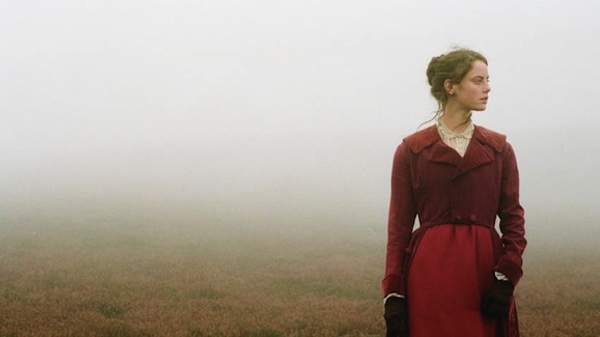Overview
The word 'squelch' is not usually one I'd use to summarise something in a complimentary way, but Andrea Arnold's adaptation of Wuthering Heights definitely squelches, and does so wonderfully. This latest version of Emily Brontë's doomy frustrated romance presents the obsessive relationship between Cathy (Kaya Scodelario) and Heathcliff (James Howson) in disturbing intensity, removing the framing device of the traveller to observe the story directly and with a greater focus on the traumatic childhood through which the two bonded.
Allowing the viewer to actually see how they ended up the way they did is a powerful choice that brings a psychological believability to the story that hasn't always been evident in other versions, and the representation of the physical setting of the story conveys how integral it is to the events taking place within it, as well as being cinematically beautiful.
It's fairly generally accepted now that Wuthering Heights is not really a very romantic story, that it is cruel and strange and its central lovers are neither of them particularly nice people. What gets less play, though, is that the landscape which forms such a part of the story and characters is as crazy as they are: it's very easy to take all the talk of the moors and isolation and even wild storms as romantic, but this film manages to convey the inconvenience and discomfort of the severity of the conditions as well as the grandeur and beauty of all that howling space.
We see and — courtesy of wonderfully evocative sound design by Nicolas Becker — hear rain falling relentlessly and mud gripping at footsteps. That's one kind of squelch, where the land is holding onto the characters and making it hard for them to move forward. Another squelch is the sickening and distressingly regular sound of someone being hurt: If the landscape is as crazy as its inhabitants, its population is as violent as the weather. Heathcliff, particularly, comes in for horrible brutality and the depiction of the abuse is unflinching, with crunches and squishes prefiguring contusions.
The physical violence and the violence of the landscape are given a corollary in the violence of will that seems to be the thematic driver of the film, from the rigid Christianity of Mr Earnshaw (Paul Hilton) to the sullen resentment of Hindley (Lee Shaw) to the contrasting malleability and thus weakness of Edgar (James Northcote) and Isabella Linton (Nichola Burley). This is a hard film to watch but one that is hard not to admire, where you don't really like anyone but have sympathy for them all, and the horrible and the beautiful are of the same materials.
https://youtube.com/watch?v=kUWOCd894-Q
Information
When
Thursday, October 11, 2012 - Wednesday, November 14, 2012
Thursday, October 11 - Wednesday, November 14, 2012
Where
Various cinemas in SydneyPrice
$15-20-
Event Type
